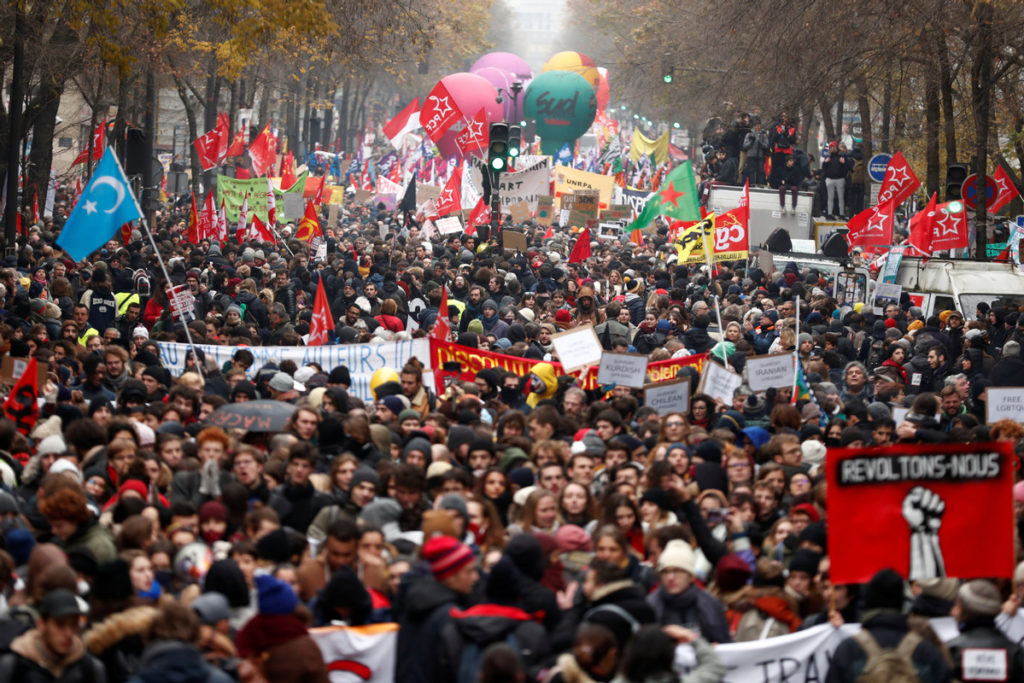
Workers oppose pension reform with grounded flights and shut metro lines
Public-sector workers, from the railways and hospitals to schools and airports, took to the streets on Thursday to protest against proposed pension reforms in one of France’s biggest nationwide strikes in decades.
Also making their voices heard were police officers and lawyers.
The country’s rail transport system almost came to a halt with 82 percent of drivers on strike and at least 90 percent of regional trains canceled. In Paris, 11 of 16 metro lines were shut.
With air-traffic controllers on strike, 30 percent of Air France’s domestic flights have been canceled; EasyJet has grounded more than 200 flights. Around a fifth of all flights into and out of France were scheduled to be canceled on Thursday.
Many schools were closed. Some police unions have warned of “symbolic” closures of certain police stations.
The strike is seen as a major test for French President Emmanuel Macron, who promised to reform the pension system in his 2017 election campaign.
France’s official retirement age has been raised from 60 to 62 over the past decade, but remains one of the lowest among OECD nations. The cost of France’s current pension system, in terms of public spending as a percentage of GDP, is at 14 percent and among the highest in the world.
While the reform bill has not been drafted yet, some information is already known to the public, with many worrying that they will be forced to retire later or face reduced pensions.
The basic plan of the reform is to merge all the 42 existing pension systems into one, and modernize the way pension contributions are calculated, according to Tomasz Michalski, an associate professor at HEC Paris, a prestigious international business school.
The move to a universal points-based pension system would remove the most advantageous pensions for a number of jobs, ranging from sailors to lawyers and even opera workers. At the same time, those retiring before 64 would receive a lower pension.
Michalski pointed out that the points-based system would create winners and losers.
Public opinion is split in France, with a large majority believing the reform is necessary. Some 50-70 percent support or have sympathy for the strikers.
Michalski said that the levels of support of for the strikers reflect people’s vested interests, opposition to Macron or fear about the consequences of the reform due to a lack of details.
He believes that it will be important for politicians to follow how public opinion evolves on the different parts of the reform as the French government makes adjustments according to public sentiment.
No one knows how long the strike will last with the Christmas peak of the festive season only two weeks away. Some trade unions have warned they will continue their strike until Macron ditches his campaign promise of reforming the pension system.
The last general strike over pension reform in 1995 crippled the country’s transport system for three weeks. It won massive popular support that forced a government reversal.
“It seems unlikely that Macron will back down: such a reform was one of his main campaign pledges, and he is personally involved in its conduct,” Michalski said.
“If he steps back, he may lose the support of the center and centerright that are currently his base. It is to be seen how long the strike can last.”
Tensions are running high after more than a year of anti-government protests by the yellow vest movement, known in French as gilets jaunes. The movement, triggered by a proposed fuel tax, has spread to encompass a wide range of grievances against the government.



